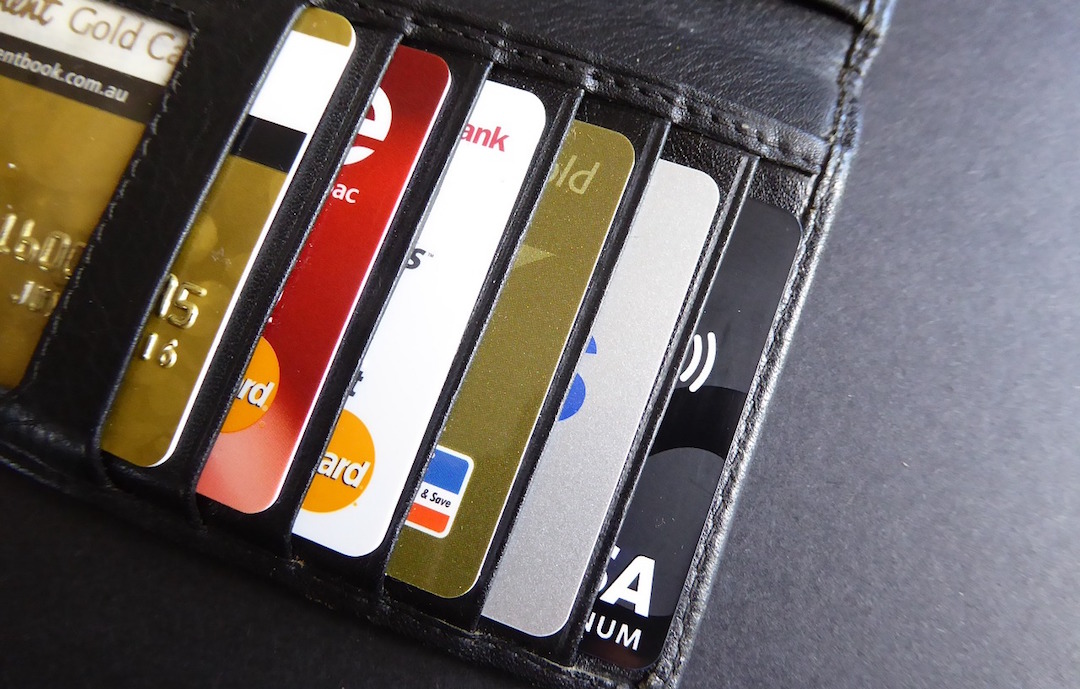An overdraft is a form of Short-Term Credit. If you’re considering getting an overdraft or just want to know does overdraft affect credit score – look no further. For an overdraft, understanding how it functions and impacts your credit score is crucial. This article covers what you should know about overdrafts, including their benefits and drawbacks and ways to use them wisely without harming your credit score. Is overdraft good for credit score or not? Equally, does not using overdraft affect credit score? Read on to find out.
Credibble Crumbs…
- Using an unarranged overdraft or exceeding your agreed limit can decrease your credit score. Although having an overdraft facility is good, dipping into it can also lower your score. So, overdrafts do affect your credit score.
- Student overdrafts operate similarly to other authorised overdrafts and may have a comparable impact on your credit score.
- If you’re trying to choose whether to pay off an overdraft or credit card, think about the interest rates and your personal circumstances. If you’re unsure, you should look for free advice.
What's Included?
What is a credit report?
Your credit report contains a record of the past six years detailing how you managed your finances and made payments towards lenders and bills. Consistent payments result in a good score, while unpaid debt or missed payments reflect poorly and lower your score. Examples include failing to pay a credit card debt or missing payment deadlines.
Any lender or bank you approach for credit or a bank account can access your credit history and score to determine your creditworthiness. This information helps them decide whether to approve or reject your credit application. You can view your credit report by using Credibble.
It is recommended to use credit reference agencies authorised and regulated by the Financial Conduct Authority such as Experian, TransUnion and Equifax. They offer subscription services allowing you to check for errors and changes regularly. Credibble is partnered with Equifax to offer your credit report. It has the added bonus of a comprehensive 24-Factor Credit Check facility so you can see exactly where you stand, where you fall short and how to improve.
How does an overdraft work?
An overdraft occurs when the balance of your current account drops to a negative amount, meaning you have spent more than what was in your account. This can’t happen with savings accounts as banks usually block transactions that would cause an overdraft. If you go into overdraft, expect to be charged fees by the bank. If you’re wondering, do overdraft fees affect your credit score? Your credit score will not be affected by overdraft fees.
There are two types of overdrafts:
1. Arranged overdraft, which is authorised or agreed upon with your bank.
2. Unarranged overdraft, which is not authorised.
Authorised overdraft
If you have an authorised or agreed overdraft, you have agreed with the bank to let your current account balance go below zero. This agreement comes with an overdraft limit, which indicates the maximum amount you can overdraw, such as £3000. However, you must repay all the money owed on a specified date or when requested. Remember that you may be charged interest for using the authorised overdraft, but the fees and interest are typically lower than those of a loan company. Make sure to clarify any fees or interest before agreeing to the overdraft.
Does an arranged overdraft affect credit rating UK?
Even dipping into an arranged overdraft can reduce your credit rating.
Unauthorised overdraft
An unauthorised overdraft occurs when you spend beyond your bank balance without having an overdraft facility. Some banks permit this for certain accounts to prevent payment failure. It can happen if you overlook bill payments through direct debit, leading to an overdrawn bank account. However, the bank will only allow a limited overdraft before rejecting further transactions. Does unarranged overdraft affect credit score? If you use an unarranged overdraft, you will most likely be charged fees and interest. Therefore, it is not advisable to do so. In addition, going below zero on your account without prior agreement with your bank (i.e. an unarranged overdraft) will hurt your credit rating.
Where can I check the impact of an overdraft?
Credibble shows the impact of an overdraft within the 24-Factor Credit Check – just hit the Short-Term Credit section. You’ll also see personalised credit insights across all of your factors. Want to improve your credit rating? No problem – specific actions show you how to improve and what to avoid. There are new insights as your credit report changes.

Does reducing your overdraft limit affect credit rating?
The answer is that reducing an overdraft generally won’t significantly improve your credit rating until it is paid off.
Does an overdraft appear on your credit report?
The unauthorised overdraft on your current account will be shown as debt on your credit report, even if you have an agreed overdraft or are not using it currently. However, if you have an agreed overdraft that is not being used, it will appear with a zero balance. So does being in overdraft affect credit score? As you can see, even if you do not use an overdraft, it will still appear on your report.
You have asked, ‘does debit card overdraft affect credit scores’. Not using your overdraft wisely may negatively impact your credit rating. On the other hand, if you pay off your overdraft, it could improve your credit score.
Does applying for an overdraft affect your credit score?
When does applying for overdraft affect credit score? A bank may check your credit history before adding an overdraft to your account or increasing your limit. That said, does increasing overdraft affect credit score? It may well do if you don’t use the facility wisely.
However, applying for one is unlikely to have any real impact on your credit score. So, if you’re wondering if ‘do overdrafts affect credit scores’, applying for one won’t, but how you use an overdraft might.
Does going into an overdraft affect your credit score?
As you can tell, ‘does an overdraft affect your credit score’, well going into an overdraft can affect your credit score in various ways.
Using an overdraft without an agreement or exceeding your limit will appear as a debt and harm your credit score. However, using an agreed overdraft responsibly by keeping your credit utilisation low and paying it back on time can boost your credit score. So, to answer the question, overdrafts can positively affect your credit rating as long as you manage them well. This indicates that you can handle your finances and repay your debts promptly.
Is it bad to use your overdraft every month?
Using an arranged overdraft each month but consistently paying it off can drop your credit rating. It’s important to note that relying too heavily on your overdraft can negatively impact your credit score by using all or most of it. To manage your accounts and lenders, using a budgeting resource in combination with Credibble’s 24-Factor Credit Check service may be helpful. By creating a plan, you can make the process less challenging.
So, does overdraft affect credit score UK? Your use of the facility can contribute to its improvement.
Does student overdraft affect your credit score?
In the UK, several student accounts provide an agreed overdraft option which remains available during your entire time as a student and even in the initial years post-graduation. Your student overdraft functions similarly to any other agreed overdraft. Consistently paying off your balance without exceeding the limit can enhance your credit rating, while failing can have the opposite effect.
Even as a student, you might ask, ‘does arranged overdraft affect credit score’ or ‘does uni overdraft affect credit scores?’ well, smartly using the facility could lead to higher scores.
Will using an overdraft stop me getting credit?
The ability to get further credit from a lender, whether a loan, overdraft or credit card, depends on your credit report. Using an overdraft will damage your credit rating. Furthermore, an unarranged overdraft can dramatically drop your credit rating and stop you from accessing credit.
Can overdrafts affect you getting a mortgage?
When applying for a mortgage, the lender will closely examine your finances. You must provide 3-month bank statements for your savings and current accounts. It’s important to note that the lender will take notice if you frequently use an unauthorised or agreed overdraft. This could potentially affect your mortgage application, but it ultimately depends on how well you manage your finances and overdrafts.
Many people commonly ask questions about overdrafts and mortgages. Questions like, “does halifax overdraft affect credit score?” and “does Barclays overdraft affect credit score?”. The answer, as you can tell, is obviously yes.
Should I pay off overdraft or credit card first?
To ensure you avoid serious consequences like losing your home or facing imprisonment, it’s important to pay off “priority debts” before other debts. Examples of priority debts include mortgage and council tax. However, credit card arrears and overdrafts are not classified as priority debts. The order in which you should pay them off depends on your personal situation. Seeking free advice from a charity can help you make a wise decision.
It’s important to consider the type of overdraft you have in this situation. If your authorised overdraft has a lower interest rate than your credit cards, paying off your credit cards first is better. This will help you save more money in total.
In summary, does having an overdraft affect credit score? The outcome may be either positive or negative based on how you utilise it.
What is the Snowball Method to manage credit?
The Snowball Method is a debt repayment strategy used most effectively to pay off existing debts. It involves making minimum payments on all your debts except for one you will pay in full. This is the debt with the lowest balance or highest interest rate.
Once this is paid off, you will pay off the next debt with the second lowest balance or second highest interest. This process is repeated until all debts are paid in full.
Using the Snowball Method to manage credit and overdrafts is beneficial because it helps you keep track of your payments and focus on your debt-free goal. The method also helps you save money in the long run as you pay off expensive debts faster and can start to build your credit score more quickly.
Frequently Asked Questions
1. Does an overdraft affect your credit score?
Yes, an overdraft can affect your credit score. Using an unarranged overdraft or exceeding your agreed limit can decrease your score, while using an agreed overdraft responsibly can improve it 1,2.
2. How does an overdraft affect your credit score?
If you regularly go beyond your overdraft limit it will damage your credit rating. That’s because it shows lenders you may be struggling financially. However, an overdraft can improve your credit rating as long as you use it sensibly by staying well within your limit, regularly paying off your overdraft and not using an unauthorised overdraft ³.
3. Does an unarranged overdraft affect your credit rating?
Yes, using an unarranged overdraft can negatively impact your credit rating ¹.
4. Can you write off an overdraft?
No, you cannot write off an overdraft. However, there are ways to manage your debt such as debt management plans or individual voluntary arrangements (IVAs) ¹.
5. How long does an overdraft stay on your credit report?
An overdraft will stay on your credit report for six years from the date it was last active ⁴.
6. Can I get a mortgage with an overdraft?
Having an overdraft will not necessarily prevent you from getting a mortgage. However, lenders will take into account how much of your overdraft you are using when assessing your affordability ⁴.
7. Can I switch bank accounts if I have an overdraft?
Yes, you can switch bank accounts if you have an overdraft. However, you will need to pay off any outstanding balance on your old account before switching ⁴.
8. How do I avoid going into my overdraft?
To avoid going into your overdraft, you should keep track of your spending and make sure you have enough money in your account to cover any bills or expenses that are due to come out ².
9. Does opening a bank account affect credit?
Opening a new bank account should only lower your credit score temporarily – but if you do it too often, your score won’t have time to recover 5.
10. Is an overdraft a loan?
An overdraft is a type of loan that allows you to borrow money through your current account 8.
11. What is considered a large overdraft?
There is no set amount that is considered a large overdraft as it depends on your personal circumstances and the amount of money you have coming in and going out of your account 9.
12. Should I remove my overdraft?
It depends on your personal circumstances. If you are regularly using your overdraft and struggling to pay it off, it may be worth considering removing it. However, if you use your overdraft responsibly and can afford to pay it off, there may be no need to remove it 6.
13. Does going into unarranged overdraft once affect credit score?
Yes, using an unarranged overdraft can negatively impact your credit rating 7.
14. Does being in your overdraft affect your credit score?
If you regularly go beyond your overdraft limit, it will damage your credit rating. That’s because it shows lenders you may be struggling financially. Using your overdraft will also bring your credit rating down but by a smaller amount.
15. Does overdraft declined affect credit score?
If you apply for an overdraft and are declined, this will show up on your credit report as a hard inquiry which can negatively impact your credit score 7.
16. Does removing an overdraft affect credit score?
If you asked, ‘does removing overdraft affect credit score?’, this will reduce your credit rating. Remember having access to an overdraft is positive towards your credit score. Using it is not – so avoid dipping in for funds unless it is absolutely essential.
17. Does it matter who I bank with?
Many ask questions concerning overdrafts and mortgages, including things like, “Does halifax overdraft affect credit score?” and “Does barclays overdraft affect credit score?” It doesn’t matter who you bank with; an overdraft has the same impact on your credit report, no matter who you may bank with.
References:
- What’s a credit score and how can you improve yours? – Equifax. https://www.equifax.com.au/personal/whats-credit-score-and-how-can-you-improve-yours.
- Does an Overdraft Affect Your Credit Score? | Lending Stream. https://www.lendingstream.co.uk/blog/does-overdraft-affect-credit-score/.
- How does an overdraft affect your credit score | Experian. https://www.experian.co.uk/consumer/guides/overdraft-credit-score.html.
- Will using my overdraft affect my credit score? | May 2023 | Finder UK. https://www.finder.com/uk/overdrafts-and-your-credit-score.
- What Affects Your Credit Score | Experian https://www.experian.com/blogs/ask-experian/credit-education/score-basics/what-affects-your-credit-scores/
- Does Opening a Bank Account Affect Your Credit Score? https://www.creditspring.co.uk/blog/does-opening-a-bank-account-affect-your-credit-score
- If you’re struggling with your overdraft – Citizens Advice. https://www.citizensadvice.org.uk/debt-and-money/borrowing-money/types-of-borrowing/bank-overdrafts
- How Does an Overdraft Affect Your Credit Score? https://cred.club/check-your-credit-score/articles/how-does-an-overdraft-affect-your-credit-score
- How does an overdraft affect your credit score | Experian. https://www.experian.co.uk/consumer/guides/overdraft-credit-score.html






